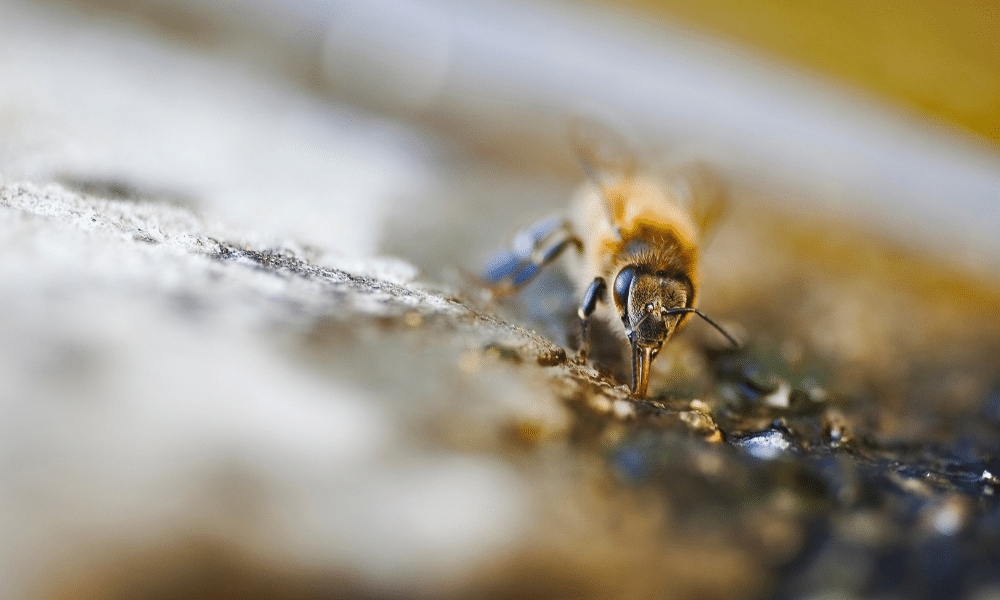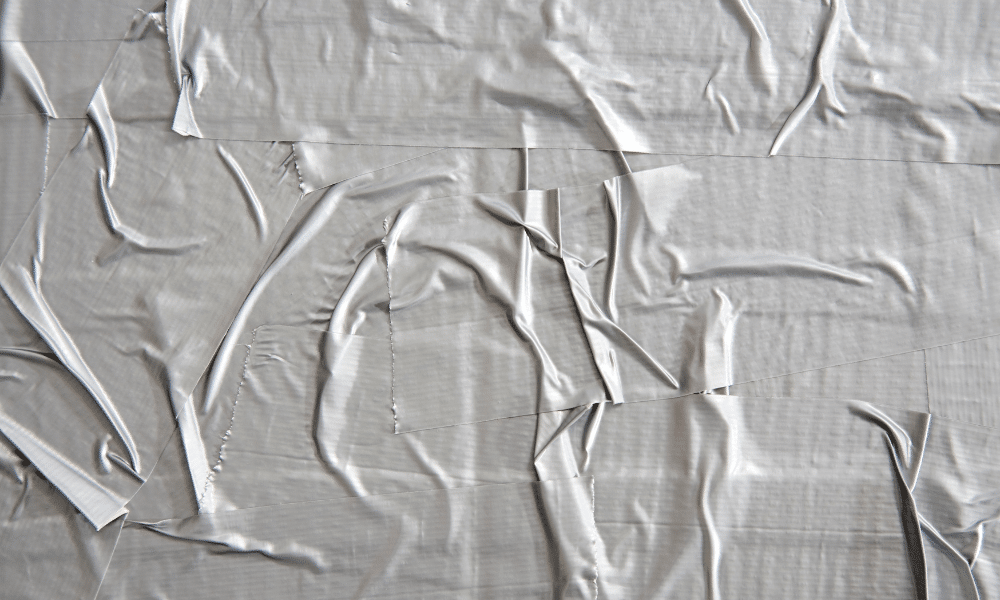You might be surprised that a common product most beekeepers swear by and always have in their bag is duct tape! This versatile product can be used in a multitude of ways. You can use it to secure the Queen cage to the hive, patch holes, adhere mesh or secure branches in nearby trees. But, will these simple fixes last forever? Can bees chew through duct tape?
Yes, bees can chew through duct tape. Bees can chew through many materials and duct tape is no different. While bees will not actively seek out duct tape, they can chew through it effectively and quickly if they need to.
Bees use their mandibles to chew and tear the tape, effectively shredding it. Bees may get stuck on the tacky side of duct tape as well, so be sure to avoid leaving that side exposed.

Why Do Bees Chew Duct Tape?
If you are a beekeeper and using duct tape around your hives, it is important to understand that bees can chew duct tape for a variety of reasons. While bees will not seek out duct tape, they may choose to eat it if there are nutrients, pollen, or sugar stuck to it.
They may also chew duct tape if it is being used to hold them inside or out of their hives.
Do not use duct tape as a way to close off an open hive. The bees will be able to chew through the tape. But also, locking bees out of their home can cause them to become agitated.
When bees become upset, they are more likely to swarm or attack. If you have a beehive or nest you need removing, call your local beekeepers. They will safely relocate the bees to a new location.
Want to Attract Bees to Your Garden?
We’ve Put Together a Complete Guide to Attracting Bees to Your Garden Including Our Top 14 Plants You NEED to Have in Your Garden:
What Size Hole Can a Bee Go Through?
According to experienced beekeepers, bees can fit through quarter-inch mesh just fine. Usually, the beekeepers place this mesh over the opening to their hives to slow the bees down but the mesh does not prevent the bees from entering or exiting.
Anything smaller than a quarter-inch mess would most likely be too small for the bees to pass through (depending on the type of bee). Worker bees have been known to fit through openings as small as one-seventh of an inch.
If you are creating a pollen trap, a mesh with a one-fifth of an inch opening allows for the bees to pass through, but not the pollen.
It is important to note the small size of openings that bees can fit through. If you are looking for this information and are not a beekeeper in training, it could mean that you are worried about bees getting into a place they should not be, like your home.
It is nearly impossible to find and seal any openings that bees can enter through. Keep an eye out for cracks in the pavement, deck boards, and siding as these are common places for bees to nest.
Yes, bees can sting through duct tape and a range of other materials. In fact, bees can even sting through gardening and leather gloves!
If you want a material that is stronger against bees then metal gauze would be the best option.
What Else Can Bees Chew Through?
Bees can chew through a variety of materials. This is evolutionary due to where many bees like to nest. While it would be better for all of us if bees kept their homes in trees away from humans, they tend to nest in areas all-around your home.
From cracks in your sidewalk and driveway to the siding of your house, bees love to nest in places near flowers. If you have a colourful floral garden, you are at risk of nesting bees.
Bees can chew through drywall, wood, some plastics, caulk, and screens.
Once they find a spot to call home, they can create a nest in less than 48 hours. Since bees move quickly, it is important to stay on your toes and continue to survey your home for small bee nests.
If you notice a beehive or nest, do not try to remove it yourself. Bees will not hesitate to defend their home if they feel threatened. Bees can travel in swarms and if they attack and sting, it can result in bodily injury to anyone in the vicinity.
Instead of attempting to kill or get rid of the bees yourself, call a local beekeeper. They will be able to safely and properly relocate the bees to a more appropriate location. It’s also worth noting that if the bees are in a quiet spot then it might be worth just leaving them be?
Summary
Bees are a vital part of our world’s ecosystem. However, we do not want them nesting in our homes or gardens. It is important to keep in mind that bees can enter spaces less than one-seventh of an inch in diameter, making it nearly impossible to prevent them from entering your home, cracks in the pavement, or patios and decks.
They can also chew through almost all building materials including wood, drywall, some plastics, caulk, and screens.
It is important to keep an eye out for bee activity and call a beekeeper right away before the problem persists and becomes a much larger and more dangerous situation.
Never use duct tape to seal off an open hive as this will cause bees to become agitated and more likely to attack. However, for beekeepers, duct tape is a convenient and versatile tool that makes a perfect addition to your beekeeper toolkit.







